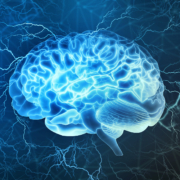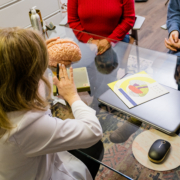Physical activity a key to brain health
One of the missions of the National Academy of Neuropsychology (NAN) is to make facts about brain health available to as many people as possible. That’s precisely why NAN recently released a quick tips video with information related to the connection between physical activity and brain health.
The video, part of NAN’s new Brain Health Hub, features NAN President, Dr. John Randolph, who also is a clinical assistant professor of psychiatry at Dartmouth University.
While we’ve known for many years that being physically active is important for general health, heart health, and our mood, we now know that being active through exercise and daily movement can do many things for the brain too.
Being physically active on a regular basis is linked to a stronger ability to focus, learn, remember, and solve problems in daily life. Benefits from exercise workouts, in particular, can happen after individual sessions, and can also happen if we exercise and stay active day to day, and week to week.
What types of physical activity count? Going on walks, hiking, dancing, cycling, doing yardwork, swimming, and many others are all good for the brain—anything that gets your heart beating a little faster than usual for at least 20-30 minutes at a time seems to be the sweet spot for improving brain health.
In this process, we can even form new neurons, or brain cells, in the memory center of the brain.
One other thing: Exercising on a regular basis is associated with a significantly reduced risk of developing Alzheimer’s disease. Even if you’re not very physically active much right now, by starting to move and exercise more often, you’ll be helping your brain stay healthy, and you may avoid problems many years from now.
Leaning into a new exercise regimen isn’t easy. If you’re having trouble building a new exercise habit, consider taking small steps first, such as going on short walks once or twice per day. Exercising with a friend might help improve your motivation to work out, and there’s evidence that exercising with someone else might be even better for brain health than exercising by yourself.
For more information about the connection between physical activity and brain health, or for information about other aspects of brain health, please visit NAN’s Brain Health Hub, a growing library of resources on the NAN website.









